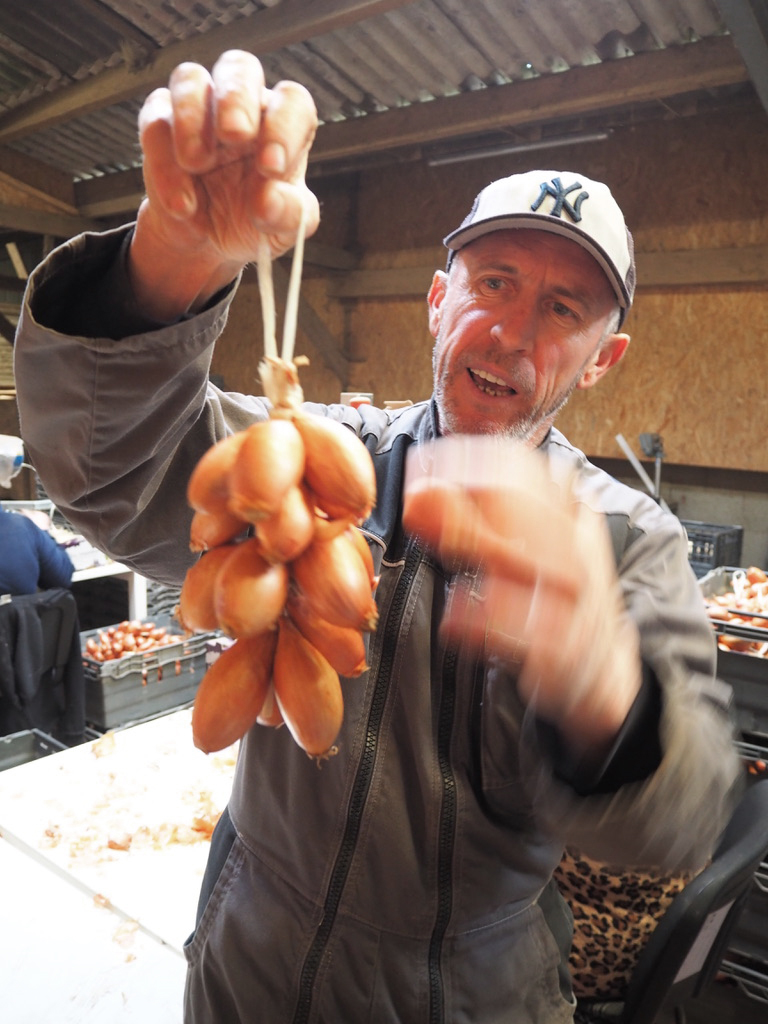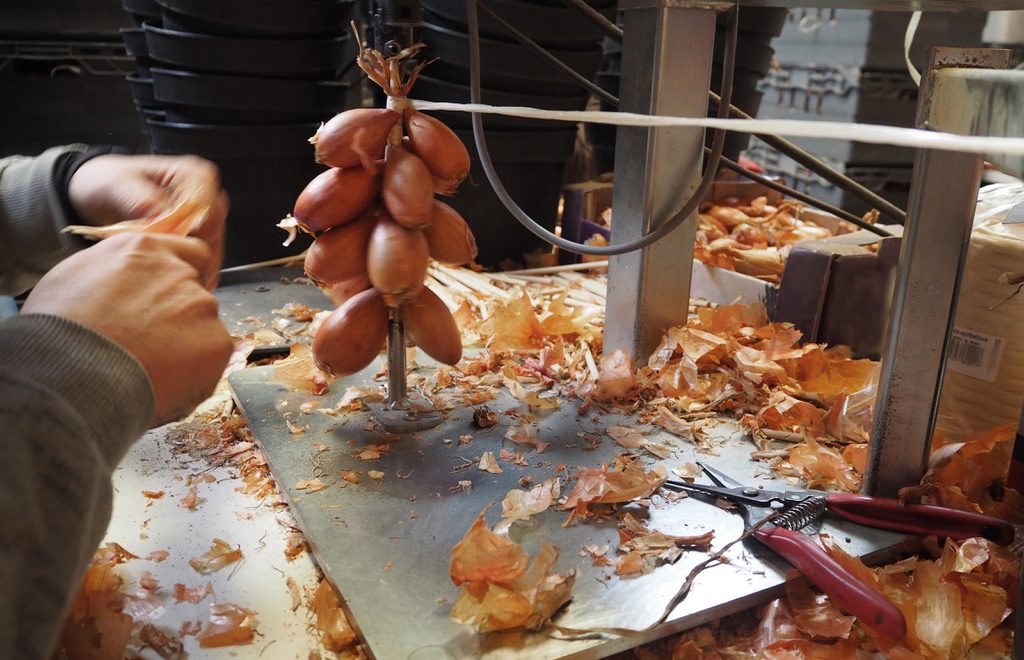Jean-Luc Congar, an athletic-looking man in his fifties, is a traditional shallot grower. With a big smile, he welcomes us to the farm his grandfather founded in 1905 in Plounevez-Lochrist, northern Finistère, where he has been working since 1988. On this farm, as in many Breton agricultural businesses, farming know-how and passion have been passed down from one generation to the next. Up until 3 years ago, Jean-Luc’s farm had 65 hectares dedicated to vegetable production, with crops including cabbage, cauliflower, broccoli and shallots.
“We could have continued along classic agricultural lines and pursued the development of the farm, but at 50 you get to thinking that it might be possible to make some changes.”
In 2018, Jean-Luc took things in a new direction and sold off a large part of his land. Today, his farm covers only 25 hectares, of which 18 are used to grow traditional shallots. This transformation was already underway in 2009 when Jean-Luc launched an energy production initiative, installing solar panels on various farm buildings. Then, in 2015, he began braiding shallots for Groupe Pouliquen. Thanks to these additional activities, he was able to reduce the portion of his business dedicated to production and achieve an economic model and lifestyle that better suit him.
Shallot braiding for Groupe Pouliquen: a service provider and partner
As a member of the SICA agricultural co-op in Saint-Pol-de-Léon, Jean-Luc Congar sells his entire shallot crop to the cooperative. Groupe Pouliquen purchases traditional shallots from the cooperatives associated with the Prince de Bretagne brand, including SICA. We provide Jean-Luc with shallots of a suitable calibre for braiding, and he and his staff do the rest. In 2021, they braided around 450 of the 8,500 tonnes of shallots sold by our company.
Traditional shallot varieties
Over time, shallot varieties change. As recently as a few years ago, the half-long shallot was the most popular Breton variety because of its high productivity. However, this variety is now much less grown, as it doesn’t keep as well as others. The long shallot is now the most common variety in Brittany, although for the last 2 or 3 years, the Molène variety has also seen growing popularity due to its mildew resistance, meaning that it requires less phytosanitary treatment. However, this transition is taking place with great caution so as to prevent any degeneration that might lead to loss of quality.
Traditional shallot production
Like all Prince de Bretagne growers, Jean-Luc Congar buys his shallots from OBS, the Breton selection organisation. This institution works exclusively with growers from the various cooperatives associated with the Prince de Bretagne brand, selecting the best species and plants for producers. Producers can propagate plants during the first year. For each certified shallot planted, an average of 7 shallots is harvested. These shallots are then skilfully processed according to strict procedures before being replanted and harvested for sale.
4 tonnes of traditional shallots to plant 1 hectare
During the winter, propagated shallots are calibrated and selected. Also in winter, processing begins with an anti-fungal treatment consisting of soaking the shallots in 43°C water for 2 hours. This treatment, which no longer necessitates any fungicide, limits the risk of disease by eliminating two problematic organisms, nematode and Botrytis allii. After this process, shallots are dried before planting season begins on 15th February. Planting takes place entirely by hand. From 5th to 20th July, shallots are pulled up and left to dry in the field for around 10 days, which ensures improved conservation. The shallots are then collected by hand and dried in silos at temperatures between 30 and 36°C for 5 to 7 days. This final stage in the process further eliminates fungi and bacteria. The shallots are then braided. One hectare of shallots requires 180 hours of work to process.
Passing on skills and building the future of farming
For several months now, Jean-Luc has been training a 22-year old man who will soon take over production management duties on the farm. This change of organisation will free Jean-Luc to concentrate on the energy production and shallot-braiding aspects of his business. At the same time, he would like to support his daughter, who is launching a food-related business project: a new generation affirming links with the land and an interest in quality products.

